Get the Best Loan Offers from 15+ lenders
Lending Partners
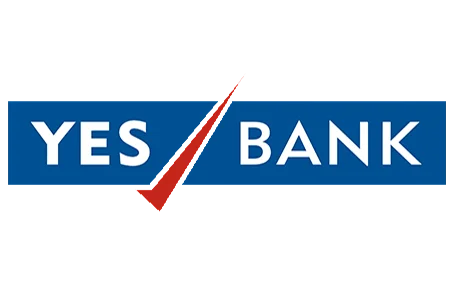

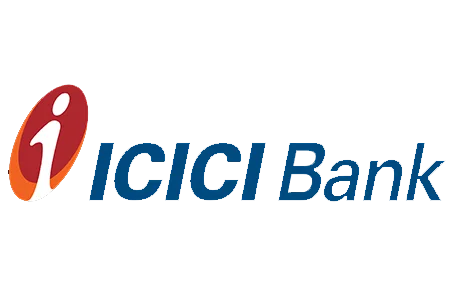
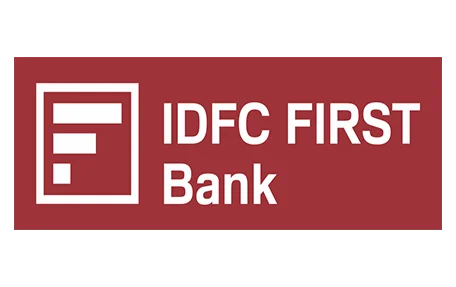
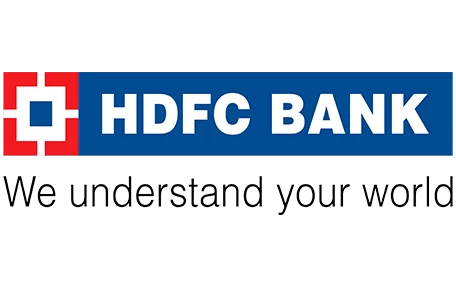

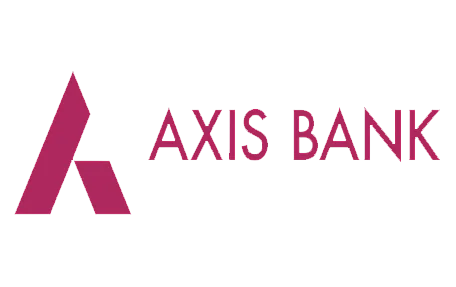
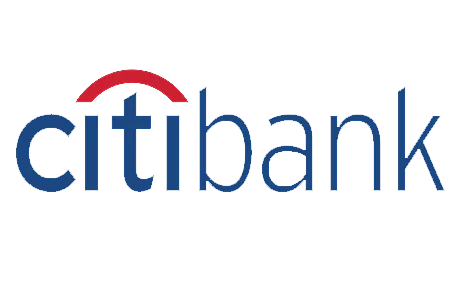



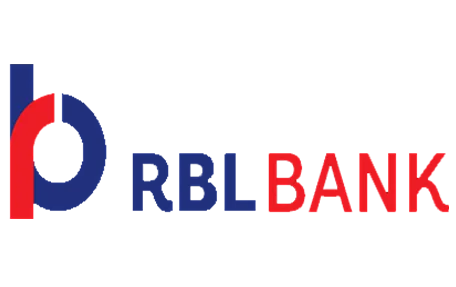

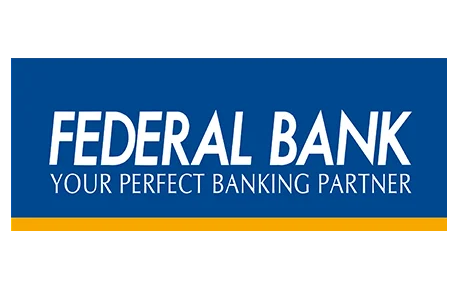
A loan can be defined as “A sum of money given on the condition that it is returned, usually with interest”. It is a debt that the borrower owes to the lender and has to pay as per the loan agreement.
So, what is a Loan? A Loan allow people to borrow money that they don’t currently have, with the promise to pay it back later with interest. Loans play an important role in financial planning and meeting big expenses.
Loans make it possible to fund large expenses, grow business, and manage financial needs in a structured manner. As per RBI guidelines, borrowers should assess repayment ability before taking a loan.
Features and Benefits of Loan
- Useful for managing large expenses for education, home, business etc.
- Available for varied needs like home loans, personal loans, business loans etc.
- Flexible repayment options through EMIs
- Secured Loans allow borrowing larger amounts by providing an asset as collateral
- Unsecured Loans don’t need collateral and are based on credit score
Importance of Loans in Financial Planning
- Help bridge the gap between current funds and large capital needed
- Useful when funds are required urgently
- Tax benefits on interest paid on certain loans like home and education
- Support managing cash flows for businesses
- Enable important investments for the future when own funds fall short
Types of Loans in India
Personal Loans
A personal loan is an unsecured loan that can be used for a variety of personal needs. Some common uses for a personal loan include debt consolidation, paying for higher education, renovating a home, or funding wedding expenses.
Features:
- Flexible loan amounts typically ranging from Rs. 50,000 to Rs. 20 lakhs
- Long repayment periods of up to 5 years
- Usually processed quickly in just a few days
Interest Rate: Interest rates for personal loans range from 10% to 24% per annum. Rates depend on applicant’s income, company policy, credit score, and loan amount.
Eligibility Criteria: The basic eligibility criteria for most personal loans are:
For Self-Employed
- Self-employed for 3 years
- Current business vintage of 3 years
- Minimum income tax returns showing profits of Rs. 2 lakhs per annum
For Army Personnel
- Minimum 3 years of service
- Clear service record and medical history
For Women
- Relaxed income criteria
- Priority processing
For Pensioners
- Receiving regular pension
- Age between 45-70 years
For Salaried Individuals
- Minimum age of 21 years
- Minimum monthly income ranging from Rs. 15,000 to Rs. 30,000 based on location Employment with current company for at least 2 years
Home Loans
A home loan helps finance the purchase, construction, extension or renovation of a residential property. It offers the longest repayment period of up to 30 years.
Features
- Loan amount from Rs. 6 lakhs to Rs. 5 crores
- Competitive interest rates
- Tax savings on interest and principal
Eligibility Criteria
- Minimum age of 21 years
- Stable income through employment or business
- Good credit score and repayment history
Interest Rates
- Rates start at about 6.65% per annum for loans up to Rs. 30 lakhs
- Lower rates for women borrowers
Interest subsidies occasionally offered for lower income groups - Government Schemes Government schemes like Pradhan Mantri Awas Yojana offer interest subsidies and other benefits on home loans for lower and middle income groups.
Education Loans
Education loans help finance higher studies in India or abroad. Long repayment periods available.
Features
- No collateral or guarantor required
- Covers tuition fees plus living expenses
- Tax deductions available
Interest Rates: Interest rates on education typically range from 10.5% to 14.5% per annum.
Eligibility Criteria
- Age limit is usually 28 years
- Loans provided for studies in approved institutes
- Minimum score requirements in past exams
Car Loans
A car loan is availed to purchase a new or used car. Provides customized repayment duration.
Features
- Loan amount sufficient to cover cost of car
- Option for foreclosure with no penalty charges
- Doorstep document collection service
Eligibility Criteria
- Need to be at least 21 years old
- Income eligibility varies by lender
Interest Rates
- Rates start at around 7.75% per annum
- Lower rates for loans under Rs. 20 lakhs
Business Loans
Business loans help fund working capital, new equipment purchases, business expansion costs and more. Special schemes for startups and SMEs.
For Startups
- Under Bharat Innovation Fund
- Venture debt financing available
- Flexible eligibility norms
For SMEs
- Under CGTMSE cover
- Simplified loan process
- Government guarantees available
Collateral Requirements
- Residential, commercial or industrial property
- Fixed deposits
- Equipment, inventory
- Government Schemes Subsidized business loans for women entrepreneurs, backward community members etc under schemes like Stand Up India and more.
Gold Loans
Gold loan availed against pledge of gold jewelry or ornaments. Among easiest and quickest loan options.
Features
- Loan amount depends on gold’s market value
- Min processing time and documentation
Eligibility Criteria
- Own gold jewelry, bars or coins
- Be at least 18 years of age
Interest Rates
- Gold loan rates among lowest starting around 7% per annum.
- Depends on loan amount and lender policy.
Loan Interest Rates
When you take a loan from a bank, you need to pay an extra amount called interest along with repaying the actual loan amount. Interest rates decide how much extra you pay.
Fixed vs Floating Rates
- In fixed rate loans, the interest rate stays the same for the full period of the loan. So your EMI amount does not change.
- In floating rate loans, the interest rate changes based on market conditions. So your EMI amount can go up or down based on rate changes.
- Banks offer both types of rate options.
- Fixed rates provide certainty about EMIs but may be higher than floating rates.
- Floating rates have more risk but you can benefit when rates fall.
Factors Affecting Loan Interest Rates
- RBI’s policy rates: RBI decides rates at which banks can borrow money. If RBI rates go up, your loan rates will also rise.
- Your credit score and profile: Banks offer lower rates to borrowers with high credit score and stable finances.
- Loan amount and tenure: Bigger and longer loans involve more risk. So banks charge higher interest rates for them.
- Type of loan: Interest rates are based on the loan purpose. Home and education loans are cheaper while personal loans and credit cards attract higher rates.
- Current Market Trends: Over the last few years, interest rates have been falling due to surplus liquidity and monetary policy easing. But inflation remains a concern which can lead to rate hikes. Keep track of RBI’s stance and key policy changes to estimate the trajectory of your loan interest costs.
Loan Application Process
Applying for a loan these days is quite easy. Most banks have user-friendly processes that can be completed online or at a branch.
Documents Required
- Proof of identity (Aadhaar card, PAN card)
- Proof of address (Aadhaar card, Voter ID, electricity/phone bill)
- Income statements (salary slips, Form 16, bank statements)
- Other financial documents as required for specific loans
Tips for Approval
- Maintain a good credit score and repayment track record
- Provide complete and accurate information in application
- Keep income and debt obligations within stable limits
- Build good relationship with bank through prior accounts
- Avoid multiple loan applications within short timeframe
Step-by-Step Process
- Check eligibility criteria of different banks for the loan.
- Prepare all required documents ready. Get them attested if needed.
- Fill the loan application form correctly. Mention required details.
- Attach and submit documents as required by the bank.
- The bank will verify documents and process the application.
- If approved, legal agreements have to be signed with the bank.
- Loan amount gets disbursed as per agreed timeline.
Online vs Offline Submission: Applying online for loans can save time and effort. The documents need to be uploaded on the bank’s website. However, for some loans offline submission at the bank branch may be required for document verification. Both processes have their own pros and cons.
Eligibility Criteria
Getting a loan can help you buy things or pay for needs when you don’t have the full amount of money available. But not everyone qualifies for every type of loan. Lenders want to make sure you will pay the money back.
To get most loans you need to meet the lender’s eligibility standards. This often includes:
- Having a steady income source so you can make the loan payments
- Meeting minimum and maximum age requirements
- Having a high enough credit score
Income Requirements: Lenders want to see that you have enough steady income to make your monthly loan payments. Many require documents showing your income sources and amounts. Self-employed individuals may need additional paperwork.
Age Criteria: Most lenders have minimum age requirements, often 18 or 21 years. Some loans require you to be under a maximum age to qualify. This is because they want to ensure you are working and earning income to repay the loan during its term.
Credit Score Importance: Your credit score is a key factor. A higher score shows lenders you are responsible with credit and likely to make payments on time. Many loans require a minimum score. Check your score beforehand and improve it if needed.
Meeting eligibility criteria is key for loan approval. Check that you satisfy the lender’s standards for income, age and credit score. This will help move your application smoothly through the process.
Loan Disbursal and Repayment
- When you take a loan from a bank, the money you borrowed is called the loan amount or principal. The bank will transfer this money to your account – this is called disbursal. You will have to pay back the loan amount plus some extra charges over a period of time, usually in monthly payments called EMIs.
- Disbursal Timelines: Banks can take 1-6 weeks to check documents and approve your loan after you apply. After approval, the money will be sent to your account in 2-7 days typically. So from application to getting the money could take anywhere between 3 weeks to 2 months.
- EMI Calculation: EMI stands for Equated Monthly Installment. It is the fixed payment you make every month to repay your loan. The EMI is calculated using the loan amount, interest rate and repayment period. Typically longer the repayment period, lower is the EMI as you are spreading the repayment over more months.
- Repayment Options: Most banks offer options to repay your loan in 1-7 years through EMIs. Longer repayment period means lower EMI but more interest paid overall. You can make part payments to reduce your repayment period or can take a payment holiday with some penalties.
- Prepayment & Foreclosure: If you want to close the loan early, you can pay a big lump sum amount to part prepay or you can pay the entire remaining principal to fully foreclose the loan. Most banks allow this but charge a small prepayment penalty fee.
Loan Restructuring
Loan restructuring means changing original terms and conditions to assist borrowers facing repayment issues. It helps borrowers avoid default and damaging their credit score further. Some things that can change in a restructured loan are:
- Higher tenure: Instead of a 5 year home loan, make it 10 years. This reduces the EMI burden.
- Interest rate: The lender may reduce rates to enable repayment.
- EMIs: Fixed EMIs can become gradually increasing. Or only interest repayment for some time.
- Penalties: Late payment fines or charges may be reduced or waived off.
Impact on Credit Score
- Credit score depends on your repayment history. Defaulting or delays in payment signal that you are a high risk borrower. This severely impacts the score.
- On the other hand, maintaining track record of timely repayments builds a strong score. Even if you defaulted before, regular future payments can help slowly rebuild your score.
- Similarly, when your loan is restructured by the lender, it may have a lower impact on credit score compared to a default. This score penalty will still remain but it won’t worsen if terms are met.
- Overall, dealing responsibly with a loan default scenario by promptly contacting the bank can help minimize score damage. A restructured loan also shows positive intent, improving your image.
Major Lenders in India
There are several major types of lenders that offer loans in India – banks, non-banking financial companies (NBFCs), online lenders, and peer-to-peer lending platforms.
Banks: Banks are traditional financial institutions that accept deposits and provide loans. Some of the top banks providing loans in India include State Bank of India, HDFC Bank, ICICI Bank, Axis Bank, and Bank of Baroda. Banks offer various types of loans such as home loans, personal loans, auto loans, education loans, business loans and more. They have branch networks across the country to disburse and collect loan payments.
NBFCs: NBFCs or Non-Banking Financial Companies are entities that provide financial services but don’t have a full banking license. Some major NBFCs lending in India include Bajaj Finserv, Fullerton, Shriram Finance, Tata Capital, and Aditya Birla Finance. NBFCs often specialize in certain loan categories and offer customized loans. They are popular for unsecured loans.
Online Lenders: With the internet boom, many purely digital lending platforms have emerged in India. These include names like IndiaLends, LendingKart, FlexiLoans, MoneyTap, Kissht, and EarlySalary. Online lenders provide quick personal loans, business loans, and other loans via user-friendly websites and apps. They use technology to provide faster processing and disbursal.
Peer-to-Peer Platforms: P2P lending platforms connect individuals who can lend money directly with borrowers. Top names include LenDenClub, Faircent, Monexo, Rupaiya Exchange, and i-Lend. Borrowers can get loans from individual lenders at attractive rates through these peer-to-peer networks. Minimal paperwork is required.
⇒ Yes, some loans may have hidden charges like processing fees, prepayment penalties, or other additional costs. It’s essential to read the loan agreement carefully and clarify all charges with the lender.
⇒ Yes, the Indian government offers various loan schemes and subsidies for different purposes, such as education loans, housing loans, and loans for small businesses or agriculture.
⇒ It may be challenging to get a loan with a bad credit score, but it’s not impossible. Some lenders offer loans for people with poor credit scores, but the interest rates and terms may be less favorable.
⇒ Yes, you can get an unsecured loan without providing any collateral. However, these loans typically have higher interest rates and stricter eligibility criteria.
⇒ Yes, you can usually prepay your loan, but some lenders may charge a prepayment penalty or fees. It’s best to check with your lender about their prepayment policies and charges.
⇒ Yes, you can take multiple loans simultaneously, but your ability to get approved will depend on your income, credit score, and existing debt obligations.
⇒ To improve your chances of getting a loan approved, maintain a good credit score, provide all required documents, and have a stable income. The loan approval process can take a few days to a couple of weeks, depending on the lender and the loan type.
⇒ To apply for a loan in India, you can visit a bank or a non-banking financial company (NBFC), fill out an application form, provide the required documents (like proof of identity, address, and income), and submit your application.
⇒ The loan amount you can get depends on factors like your income, credit score, existing debts, and the purpose of the loan. Lenders will evaluate your repayment capacity and provide a loan amount accordingly.
⇒ It is possible to get a loan with a low credit score, but the interest rates and terms may be less favorable. Some lenders may require additional collateral or a co-signer with a good credit score.
⇒ Some common types of loans in India include personal loans, home loans (mortgages), car loans, education loans, business loans, gold loans, and loans against property.
⇒ In India, you can claim tax deductions on the interest paid for certain types of loans, such as home loans, education loans, and personal loans for specific purposes.
⇒ Typical documents required for a loan application include proof of identity (like Aadhaar card or PAN card), proof of address, income documents (like salary slips or bank statements), and any other documents specified by the lender.
⇒ If you don’t pay back your loan on time, you may have to pay late payment fees or penalties. Consistently missing payments can lead to legal action from the lender, and it will also negatively impact your credit score, making it harder to get loans in the future.
⇒ A credit score is a number that reflects your creditworthiness or your ability to repay a loan. It’s important because lenders use your credit score to decide whether to approve your loan application and to determine the interest rate and terms.
⇒ An EMI is the fixed amount you pay every month to repay your loan. It includes the principal amount (the original loan amount) and the interest. EMIs are calculated based on the loan amount, interest rate, and the repayment period.
⇒ A secured loan requires you to provide collateral (like a house or a car) as security, while an unsecured loan does not require any collateral. Secured loans generally have lower interest rates but can put your asset at risk if you default on payments.
⇒ A fixed interest rate remains the same throughout the loan tenure, while a floating interest rate changes periodically based on market conditions. Fixed rates provide certainty, while floating rates can be riskier but may be lower initially.
⇒ The interest rate on a loan is the cost you pay to the lender for borrowing their money. It’s usually expressed as a percentage of the loan amount. Interest rates are determined by factors like the loan type, your credit score, and the lender’s policies.
⇒ The tenure or repayment period is the amount of time you have to repay the loan in full, along with the interest. It can range from a few months to several years, depending on the loan type and lender’s policies.
⇒ People take loans for various reasons, such as buying a house, a car, paying for education, starting a business, or covering unexpected expenses when they don’t have enough savings or funds readily available.
